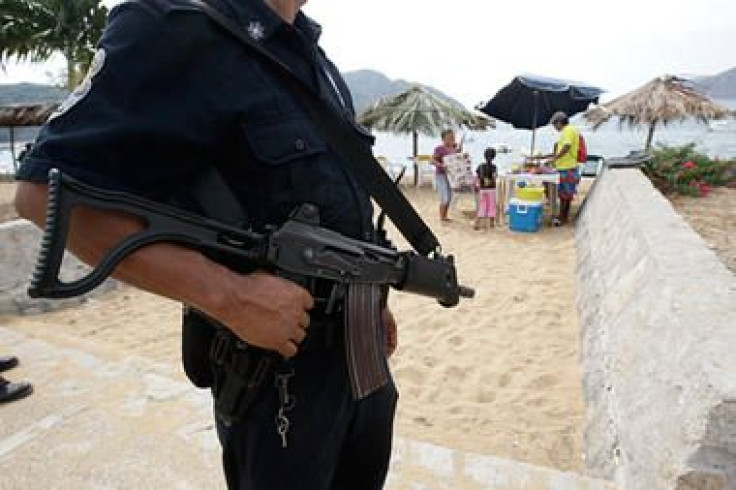
Gonzalo Molina González, a spokesperson for the community-defense militia association CRAC in Mexico's southern Guerrero state, said last week in the municipality of Tixtla that 70 members of his organization had disappeared after the Mexican army disarmed them. Molina González also struck back at reports in the Mexican news media that described the Heckler & Koch (H&K) assault rifles confiscated from the self-defense group -- a type considered more lethal than the Russian AK-47 rifle -- without specifying the origin of the weapon. The CRAC spokesperson said the rifles had been taken from the Tixtla police department the previous Monday during the militia's taking of city hall.
Molina González added that those weapons which had belonged to the police would be returned to them and that the CRAC had taken them because no authority had shown up to hand over government headquarters to CRAC control. "It's a strategy to destroy the CRAC, because we're keeping them from exploiting the mining resources," he said. "They're trying to figure out a way to do what they haven't been able to yet, and they want to do it through these arms. There's thousands of people who witnessed us confiscate the arms from the municipal police." The militia group had entered city hall last week and locked the doors behind them, shooting shotguns into the air and wounding the police chief with a machete swipe to his right hand. The CRAC had undertaken the maneuver to protest the arrest of some 30 members including Néstora Salgado García, a CRAC coordinator from the village of Olinalá in the Tixtla municipality.
Over the weekend, the CRAC staged marches to continue protests against what they say is the wrongful detention of Salgado García. José Villanueva Manzanares, a spokesman for the Guerrero state government, said that armed self-defense groups must act within the law while keeping the peace in their communities. Civil groups in Mexico are permitted to act to guarantee security in their municipalities under a law which permits the organization of indigenous peoples. He added that the state must be able to assert control over the self-defense forces by keeping a registry or other measures deemed necessary to know the identity of members, where they are carrying out their services, and the type and caliber of the arms they're using.
The CRAC carries out its patrols in over 50 indigenous communities located on the Costa Chica -- the Pacific Coast of the state of Guerrero -- in an area that's comprised of four town jurisdictions.
RELATED: All-Women Self-Defense Militia In Guerrero, Mexico Says They Are Capable Of Defending Town Against Drug War Violence
© 2024 Latin Times. All rights reserved. Do not reproduce without permission.